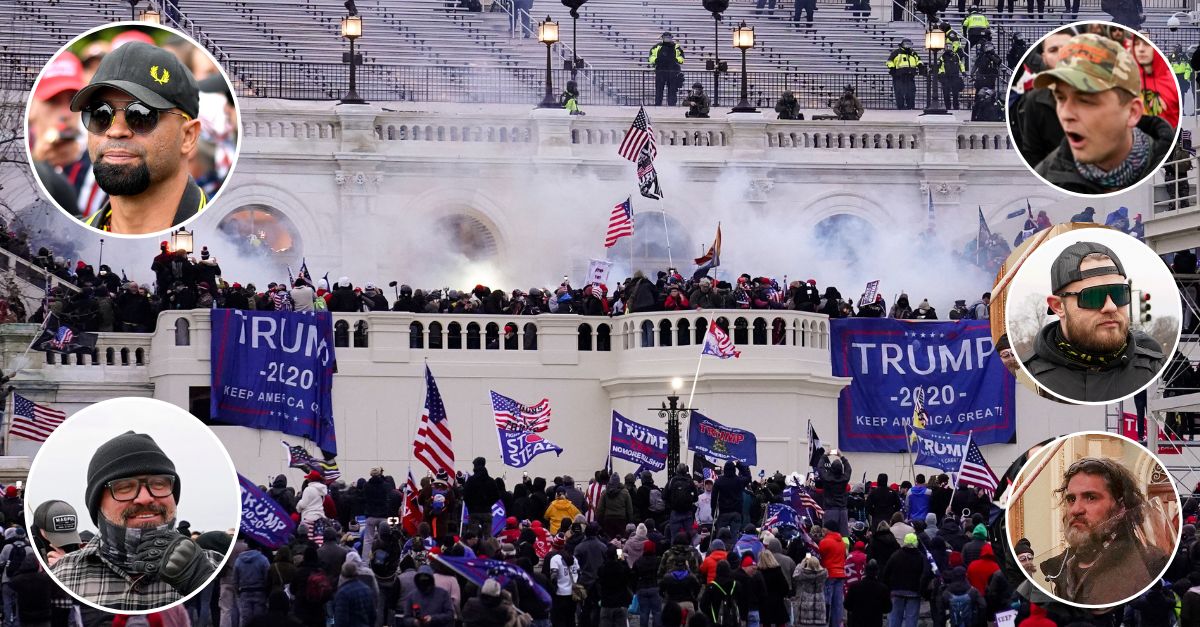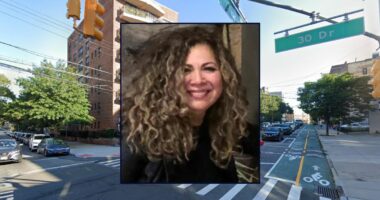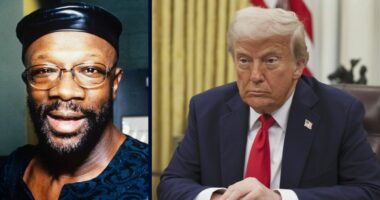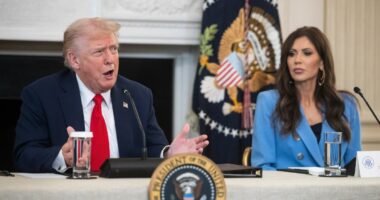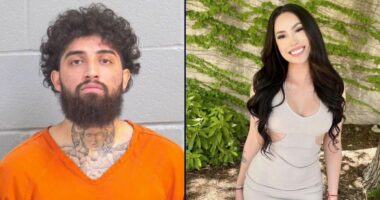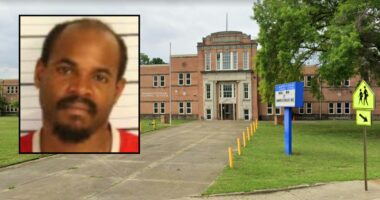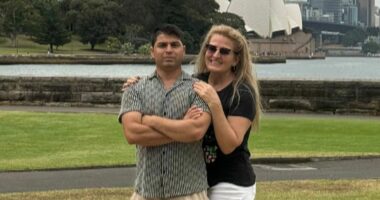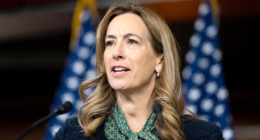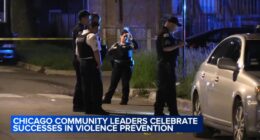Share this @internewscast.com
Background: Supporters of President Donald Trump violently breached the Capitol on January 6, 2021, in Washington (AP Photo/John Minchillo, File). Insets, clockwise from top left: Enrique Tarrio (AP Photo/Noah Berger, File); Zachary Rehl (AP Photo/Carolyn Kaster, File); Ethan Nordean (AP Photo/Carolyn Kaster, File); Dominic Pezzola (AP Photo/Manuel Balce Ceneta, File); Joseph Biggs (AP Photo/Carolyn Kaster, file).
Some Proud Boys members are taking legal action against the U.S. government, demanding over $100 million following their legal charges and verdicts related to the January 6th incident at the U.S. Capitol.
In a 28-page complaint submitted in the Middle District of Florida, spearheaded by Enrique Tarrio, the lawsuit claims that the U.S. Department of Justice (DOJ) and the FBI breached their constitutional rights, describing it as a “political prosecution” tied to their “alleged involvement in planning the events of January 6, 2021.”
Each of the five plaintiffs were pardoned by President Donald Trump in a blanket grant of clemency offered to Jan. 6 defendants after being sworn in for his second term. Specifically, the plaintiffs were pardoned over their collective May 2023 conviction on a raft of charges.
Now, the Proud Boys are taking issue with various aspects of their treatment at the hands of the federal government — from surveillance to arrest, and from detention to in-court behavior — including the basic thrust of the arguments used to justify their prosecution.
Love true crime? Sign up for our newsletter, The Law&Crime Docket, to get the latest real-life crime stories delivered right to your inbox.
“Despite the legal jiggery-pokery employed by the government to obscure the fact, the Plaintiffs were essentially convicted of ‘stochastic terrorism,’ a leftist bugbear used to describe rhetoric offensive to them that they claim provokes violent acts,” a footnote in the lawsuit reads.
The plaintiffs describe the Capitol riot as an “incursion” into the national legislative seat of government “by elements of the federal government, leftist agitators, and Trump supporters” but say they did not take part in the property destruction and violence themselves.
“Members of the Proud Boys, a patriotic activist organization, were present at January 6, including all Plaintiffs but Tarrio, but did not engage in violence or provocation of the crowd,” the filing reads. “The Plaintiffs, however, spoke with people who were at the Capitol before, during, and after January 6.”
In particular, the plaintiffs also say a document “planted in Tarrio’s inbox” which the government, during their trial “admitted he did not compose, open, read, or transmit to anyone” was used, in conjunction with their “communications” in Washington, D.C., that day to gin up a suite of charges premised on seditious conspiracy — a charge which four of the five plaintiffs were ultimately convicted.
This legal theory, the lawsuit claims, was bespoke, tendentious and improper.
“The Defendants utilized a novel legal theory called the ‘tool’ theory,” the lawsuit goes on. “Under this theory, the Defendants argued that any wrongful or illegal action taken by any member of the crowd present on January 6 was attributable to the Plaintiffs, regardless of whether any of the Plaintiffs had actually ever directed, spoken to, or even known the person committing the crime.”
The plaintiffs insist the theory of prosecution was a substantial reach that did not rely on their actual physical behavior on Jan. 6.
From the lawsuit, at length:
The Plaintiffs themselves did not obstruct the proceedings at the Capitol, destroy government property, resist arrest, conspire to impede the police, or participate in civil disorder, nor did they plan for or order anyone else to do so.
In convicting the J6 Defendants under 18 U.S.C. § 2384 by interpreting it as encompassing the novel criminal conspiracy “tool” theory propounded by the government, the government expanded the coverage of the statute to become “so vague as to that it fails to give ordinary people fair notice of the conduct it punishes …” because you can be convicted for conspiracy with people over whom you have no authority and to whom you gave no orders.
And, the plaintiffs allege, the government even went so far as to spy on their legal defense team during trial.
“To secure an unfair advantage in litigation, and ensure that the Plaintiffs were convicted and sent to prison regardless of the strength of the government’s case, the FBI and DOJ monitored attorney-client communications and used paid confidential informants as spies on the Plaintiffs’ and the Plaintiffs’ defense team,” the lawsuit continues.
The plaintiffs also allege two unnamed FBI agents threatened Shane Lamond, who previously headed the Metropolitan Police Department’s Intelligence Branch, out of testifying in Tarrio’s defense. Lamond was recently sentenced to prison for leaking information to Tarrio about a separate criminal prosecution.
Additionally, the lawsuit claims FBI Special Agent Nicole Miller “destroyed exculpatory evidence and altered evidence to make it incriminating” to the plaintiffs and worked to “harass, persecute, and otherwise harm” the plaintiffs and their families by having them de-banked and trying to “strangle their businesses, and cancel their veteran’s benefits” in order to “pressure them to comply with the government’s demands.”
The four-count lawsuit contains three Bivens claims, premised on violations of the Fourth, Fifth, and Sixth Amendments.
A Bivens claim, based on a 1971 U.S. Supreme Court case, is a kind of lawsuit that allows citizens to sue federal government officials over constitutional violations. The path here, for the plaintiffs, however, is unclear as the Roberts court has all but effectively overruled the Bivens doctrine.
The lawsuit also contains a claim of malicious prosecution.
“The Defendants prosecuted the Plaintiffs despite knowing that the Plaintiffs neither participated in the events of January 6 nor organized and coordinated them; indeed, they had to invent a whole new legal theory, stack the jury, breach attorney-client communications, and imbed a paid government informant in order to convict them,” the filing reads. “Defendants, while acting individually, jointly, and in conspiracy, as well as under the color of law and within the scope of their employment, deprived the Plaintiffs of their constitutional right to be free from unlawful prosecution and continued detention without probable cause.”
The lawsuit seeks $100 million in punitive damages alone, as well as compensatory damages, and attorneys fees.
